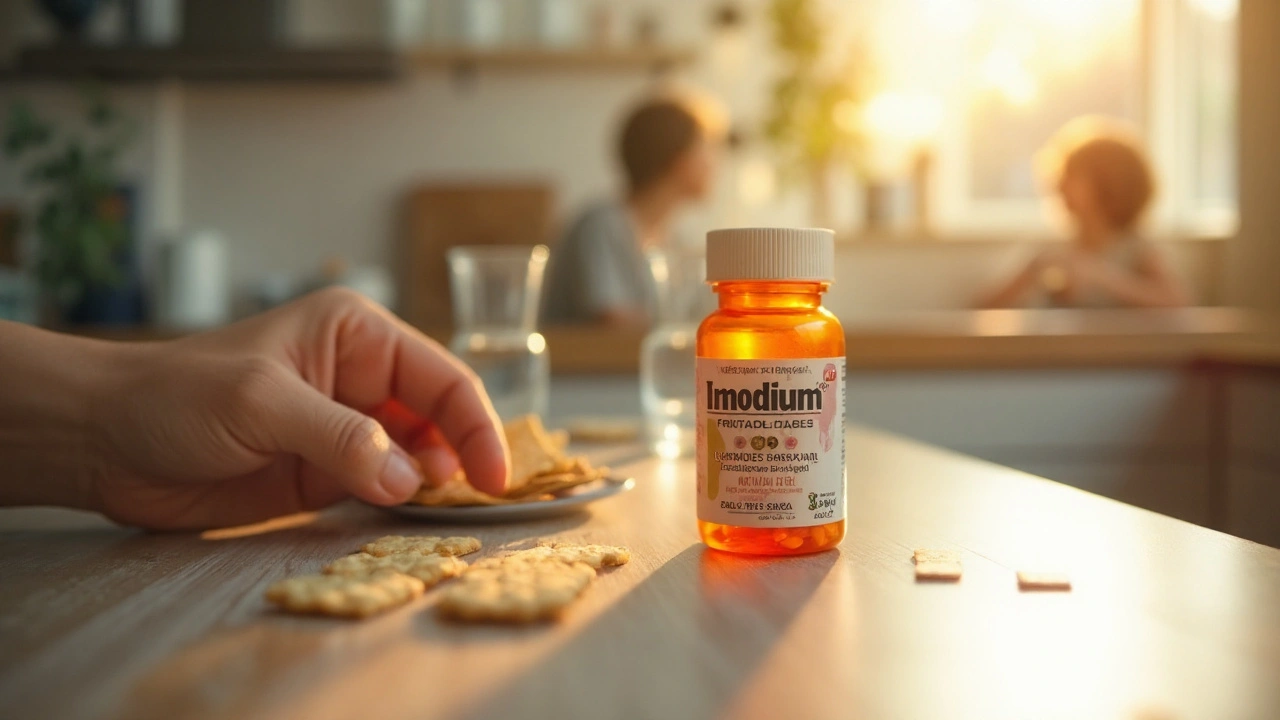Antidiarrheal Drugs: What They Are and How They Help
Got a sudden run‑to‑the‑bathroom situation? Antidiarrheal meds are the quick fix many turn to when the gut goes rogue. They work by slowing down the intestine, tightening stools, or sealing leaks in the digestive tract. The most common over‑the‑counter options are loperamide (Imodium) and bismuth subsalicylate (Pepto‑Bismol). Prescription‑only choices include diphenoxylate‑atropine (Lomotil) and octreotide, which doctors reserve for chronic or severe cases.
When a Drug Switches Roles: Repurposing Antidiarrheals
Sometimes a pill designed for one problem shows up handy for another. Loperamide, for example, is being studied for its anti‑inflammatory effects in certain skin conditions. Researchers have also looked at bismuth subsalicylate as a tool against Helicobacter pylori infections because the bismuth component can coat the stomach lining and help clear the bacteria. These off‑label uses aren’t mainstream yet, but they illustrate how existing drugs can get a second life when scientists test new angles.
Safety First: What to Watch When Using Antidiarrheals
Even though antidiarrheals feel harmless, they have rules you should follow. If you have a fever, blood in the stool, or an infection that needs to clear out, stopping the medicine is usually best. Loperamide can cause serious heart rhythm problems when taken in huge doses, so never exceed the recommended amount. Pregnant or nursing moms should check with a doctor before reaching for any antidiarrheal, especially the prescription ones.
Another hidden risk is drug interactions. Diphenoxylate‑atropine can boost the effects of other medications that slow the gut, leading to constipation or worse. Octreotide, a hormone analog, can interfere with insulin and affect blood sugar levels, so diabetic patients need close monitoring.
When you buy antidiarrheal products online, make sure the site is reputable. Look for pharmacy licenses, require a prescription for prescription‑only meds, and avoid unbelievably cheap offers that sound too good to be true.
If you’re dealing with chronic diarrhea—like from IBS, Crohn’s disease, or a post‑viral gut—talk to a healthcare professional about long‑term plans. Often the best approach combines diet changes, probiotics, and a tailored medication schedule. Sometimes the doctor might suggest a repurposed drug that’s not traditionally used for diarrhea but has shown benefits in early studies.
Bottom line: antidiarrheal medicines are handy tools, but they’re not a free pass to ignore underlying health issues. Use them responsibly, stay alert for side effects, and keep an eye on new research that might turn an old drug into a fresh solution for other ailments.
Imodium: How It Works, Dosage, Side Effects & Alternatives Explained
Find out what Imodium is, how it fights diarrhea, the right dosage, possible side effects, and the best alternatives. Practical tips for safe use and when to see a doctor.
